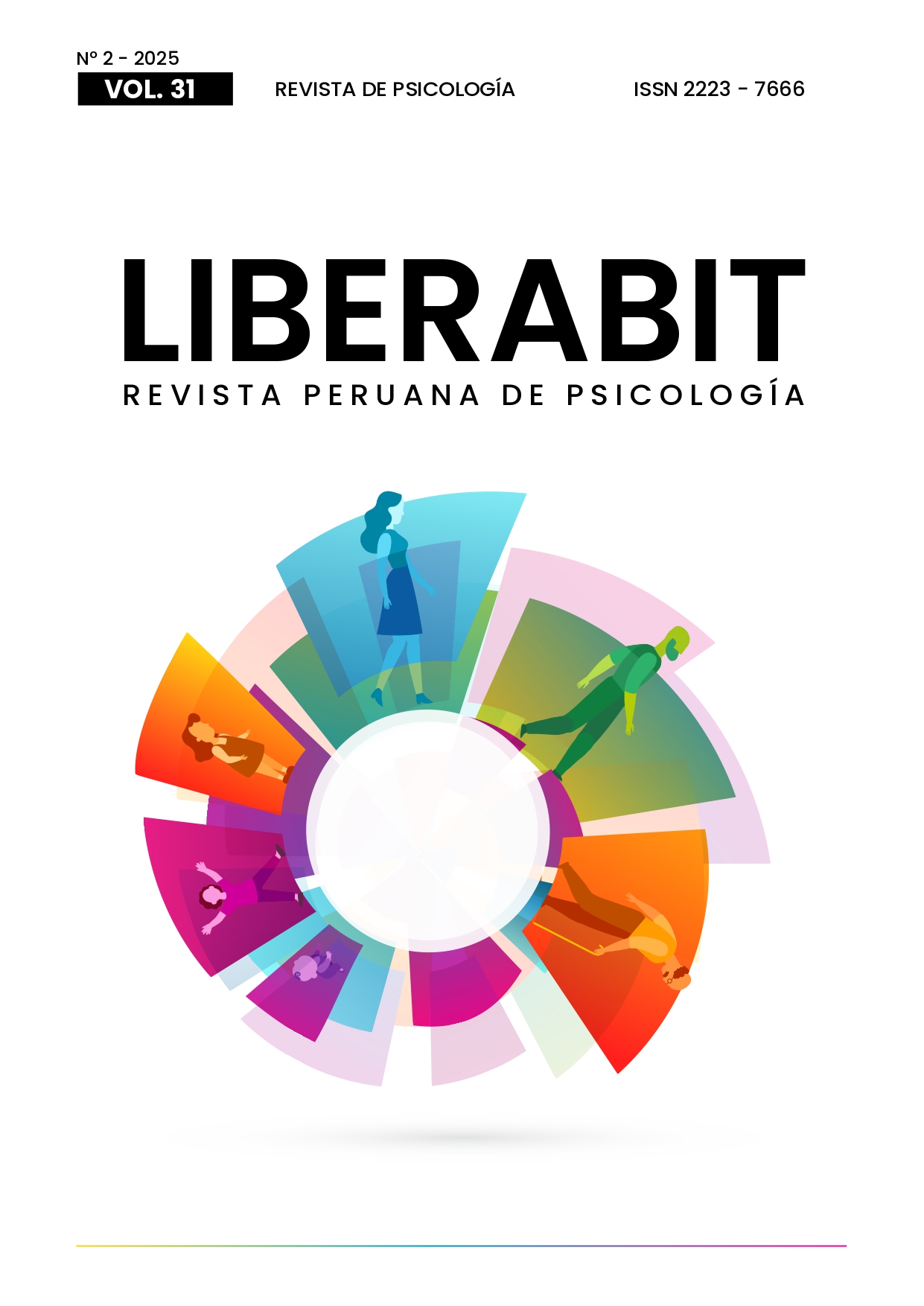Subjective Theories about the Artificial Intelligence ‘ChatGPT’ and its Relationship with Teaching, Learning, and Professional Identity of Pedagogy Students
DOI:
https://doi.org/10.24265/Palavras-chave:
ChatGPT, teaching role, professional identify, pedagogy student, subjective theoriesResumo
Background: Artificial intelligence has impacted various field, incluiding education. ChatGPT, in particular, has sparked debate about its influence on teaching, learning, and profesional Identity in educators. Objectives: This study describes and interprets subjetive theories about ChatGPT and its relationship with teaching, learning, and professional identity in pedagogy students. Method: A qualitative, descriptive, and interpretative case study desing was employed. Ten pedagogy students from a chilean university participated, selected through theorical sampling. Episodic interviews were conductec, and data were analyzed using thematic, axial, and selective coding. Results: Subjetive theories identified highlight ChatGPT’s potential as a teaching and learning support tool, as well as concerns regarding its impact on professional identity and learning autonomy. Conclusions: This subjectivity of future teachers, wich may guide the development of ethical and effective strategies for its use in teacher training.
Downloads
Referências
Baidoo-Anu, D., & Owusu, L. (2023). Education in the Era of Generative Artificial Intelligence (AI): Understanding the Potencial Benefits of ChatGPT in Promoting Teaching and Learning. Journal of AI, 7(1), 52-62. http://dx.doi.org/10.2139/ssrn.4337484
Beijaard, D., Meijer, P. C., & Verloop, N. (2004). Reconsidering Research on Teachers’ Professional Identity. Teaching and Teacher Education, 20(2), 107-128. https://doi.org/10.1016/j.tate.2003.07.001
Beauchamp, C., & Thomas, L. (2009). Understanding Teacher Identity: An Overview of Issues in the Literature and Implications for Teacher Education. Cambridge Journal of Education, 39(2), 175-189. https://doi.org/10.1080/03057640902902252
Brown, T. B., Mann, B., Ryder, N., Subbiah, M., Kaplan, J., Dhariwal, P., Neelakantan, A., Shyam, P., Sastry, G., Askell, A., Agarwal, S., Hebert-Voss, A., Krueger, G., Henighan, T., Child, R., Ramesh, A., Ziegler, D., Wu, J., Winter, C., … Amodei, D. (2020). Language Models are Few-Shot Learners. En M. I. Jordan, Y. LeCun, & S. A. Solla (Eds.), Advances in Neural Information Processing Systems: Proceedings of the first 12 Conferences (pp. 1877-1901). The MIT Press.
Catalán, J. (2016). Hacia la formulación de una teoría general de las teorías subjetivas. Psicoperspectivas, 15(1), 53-65. https://dx.doi.org/10.5027/psicoperspectivas-Vol15 Issue1-fulltext-739
Catalán, J. (2021). Análisis de investigación educacional cualitativa: aprendiendo a usar y generar conocimiento. Editorial Universidad de La Serena.
Cuadra, D., & Castro-Carrasco, P. J. (2021). La dimensión emocional de las teorías subjetivas. Revista de Sociología, 36(1), 57-67. https://doi.org/10.5354/0719-529X.2021.64426
Cuadra, D., Castro-Carrasco, P., Oyanadel, C., & González, I. (2021). Identidad profesional docente en la formación universitaria: una revisión sistemática de estudios cualitativos. Formación Universitaria, 14(4), 79-92. http://dx.doi.org/10.4067/S0718-50062021000400079
Flick, U. (2007). Introducción a la investigación cualitativa (2da. ed.). Morata.
Flick, U. (2015). El diseño de investigación cualitativa. Morata
Gajardo-Asbún, K. P. (2019). Estado del arte sobre identidad docente: investigación de experiencias de profesores en formación y en ejercicio. IE Revista de Investigación Educativa de la REDIECH, 10(18), 79-93. https://doi.org/10.33010/ie_rie_rediech.v10i18.217
García-Peñalvo, F. (2023). La percepción de la inteligencia artificial en contextos educativos tras el lanzamiento de ChatGPT: disrupción o pánico. Education in the Knowledge Society, 24, 1-9. https://doi.org/10.14201/eks.31279
Glaser, B., & Strauss, A. (1967). The Discovery of Grounded Theory: Strategies for Qualitative Research. AldineTransaction.
Grassini, S. (2023). Shaping the Future of Education: Exploring the Potential and Consequences of AI and ChatGPT in Educational Settings. Education Sciences, 13(7), 692. https://doi.org/10.3390/educsci13070692
Izadinia, M. (2013). A Review of Research on Student Teachers’ Professional Identity. British Educational Research Journal, 39(4), 694-713. https://doi.org/10.1080/01411926.2012.679614
Kalla, D., Smith, N., Samaah, F., & Kuraku, S. (2023). Study and Analysis of Chat GPT and its Impact on Different Fields of Study. International Journal of Innovative Science and Research Technology, 8(3), 827-833. https://papers.ssrn.com/sol3/papers.cfm?abstract_id=4402499
Liu, Q., & Geertshuis, S. (2016). Professional Identity and Teachers’ Learning Technology Adoption: A Review of Adopter-Related Antecedents. En S. Barker, S. Dawson, A. Pardo, & C. Colvin (Eds.), Show Me the Learning. Proceedings ASCILITE 2016 Adelaide (pp. 365-374). https://doi.org/10.14742/apubs.2016.809
Lo, C. K. (2023). What Is the Impact of ChatGPT on Education? A Rapid Review of the Literature. Education Science, 13(4), 410. https://doi.org/10.3390/educsci13040410
Lund, B. D., & Wang, T. (2023). Chatting about ChatGPT: How May AI and GPT Impact Academia and Libraries? Library Hi Tech News, 40(3), 26-29. http://dx.doi.org/10.2139/ssrn.4333415
Meneses, G. (2007). El proceso de enseñanza-aprendizaje: el acto didáctico. Interacción y aprendizaje en la universidad, 31-65. https://www.tdx.cat/bitstream/handle/10803/8929/Elprocesodeensenanza.pdf
Qasem, F. (2023). ChatGPT in Scientific and Academic Research: Future Fears and Reassurances. Library Hi Tech News, 40(3). 30-32. https://doi.org/10.1108/LHTN-03-2023-0043
Rahman, M., & Watanobe, Y. (2023). ChatGPT for Education and Research: Opportunities, Threats, and Strategies. Applied Sciences, 13(9), 5783. https://doi.org/10.3390/app13095783
Rudolph, J., Tan, S., & Tan, S. (2023). ChatGPT: Bullshit Spewer or the end of Traditional Assessments in Higher Education? Journal of Applied Learning & Teaching, 6(1), 342-263. https://doi.org/10.37074/jalt.2023.6.1.9
Stake, R. (1999). Investigación con estudio de casos (2da ed.). Morata.
Strauss, A. L. (1987). Qualitative Analysis for Social Scientist. https://doi.org/10.1017/cbo9780511557842
Sok, S., & Heng, K. (2023). ChatGPT for Education and Research: A Review of Benefits and Risks. Cambodian Journal of Educational Research, 3(1), 110-121. https://papers.ssrn.com/sol3/papers.cfm?abstract_id=4378735#
Tlili, A., Shehata, B., Agyemang, M., Bozkurt, A., Hickey, D., Huang, R., & Agyemang, B. (2023). What if the devil is my guardian angel: ChatGPT as a case study of using chatbots in education. Smart Learning Environments, 15, 1-24. https://doi.org/10.1186/s40561-023-00237-x
Wach, K., Duong, C. D., Ejdys, J., Kazlauskaitė, R., Koryznski, P., Mazurek, G., Paliszkiecwicz, J., & Ziemba, E. (2023). The Dark Side of Generative Artificial Intelligence: A Critical Analysis of Controversies and Risks of ChatGPT. Entrepeneurial Business and Economics Review, 11(2), 7-30. https://doi.org/10.15678/EBER.2023.110201
Wardat, Y., Tashtoush, M., AlAli, R., & Jarrah, A. (2023). ChatGPT: A Revolutionary Tool for Teaching and Learning Mathematics. Eurasia Journal of Mathematics, Science and Technology Education, 19(7), 1-18. https://doi.org/10.29333/ejmste/13272
Zhu, J. J., Jiang, J., Yang, M., & Ren, Z. J. (2023). ChatGPT and Enviromental Research. Enviromental Science & Technology, 57(46), 17667-17670. https://doi.org/10.1021/acs.est.3c01818
Downloads
Publicado
Edição
Seção
Licença
Copyright (c) 2025 Matias López Álvarez, David Cuadra Martínez

Este trabalho está licenciado sob uma licença Creative Commons Attribution 4.0 International License.
Direitos autorais: Caso o manuscrito seja aprovado para publicação futura, os autores retêm os direitos autorais e atribuem à revista os direitos de publicar, editar, reproduzir, distribuir, exibir e comunicar nacional e internacionalmente nos diversos bancos de dados, repositórios e portais.
Política de auto-arquivamento: O autor pode compartilhar, disseminar e divulgar suas pesquisas publicadas pela mídia (por exemplo, redes sociais acadêmicas, repositórios e portais) disponíveis na web. Durante o processo de revisão editorial, a revista fornecerá ao autor as versões anteriores (pós-impressão) que NÃO devem ser divulgadas por nenhum meio de comunicação, apenas para uso pessoal e para aprovação final. Liberabit, enviará ao autor a versão final do artigo (versão publicada) em PDF e HTML para ser compartilhada, divulgada e divulgada pela mídia disponível na web. Após a publicação dos artigos, os autores podem fazer outros acordos independentes ou adicionais para a divulgação não exclusiva da versão do artigo publicado nesta revista (publicação em livros ou repositórios institucionais), desde que seja indicado com a respectiva referência que a obra foi publicada pela primeira vez nesta revista.











